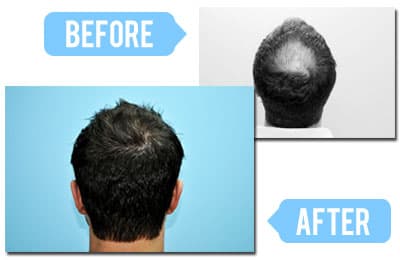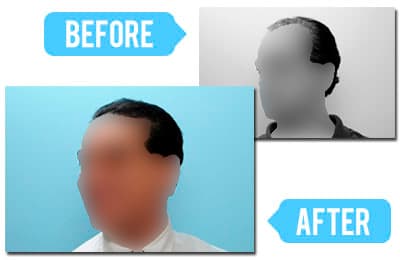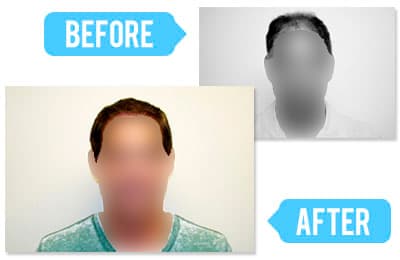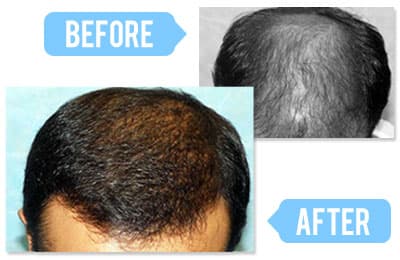Top Tips to Choose the Best Hair Transplant Doctor
The Complete Guide to Hair Loss & Hair Transplants in the United Kingdom
Hair loss affects millions of people worldwide, with men and women equally facing the physical and emotional impact of thinning hair. Fortunately, modern medicine has evolved, and various solutions are available for restoring lost hair and confidence. Among them, the hair transplant United Kingdom clinics offer state-of-the-art procedures and advanced treatments tailored to individual needs.
Whether you're looking for a permanent fix like a transplant or non-surgical options, this guide covers everything about hair loss treatment for men & women, with a special focus on the UK.
Understanding Hair Loss Causes & Patterns
Hair loss can be caused by a range of factors including genetics, hormonal changes, stress, nutritional deficiencies, or underlying medical conditions.
Common Causes of Hair Loss in Men:
- Androgenetic Alopecia (Male Pattern Baldness)
- Hormonal imbalances (e.g., DHT sensitivity)
- Nutritional deficiencies
- Stress or illness
- Scalp infections
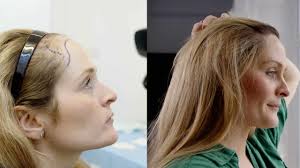
Common Causes of Hair Loss in Women:
- Female Pattern Hair Loss
- Postpartum shedding
- Menopause-related changes
- Thyroid issues
- Tight hairstyles (traction alopecia)
While hair loss in men often follows a predictable pattern (receding hairline, crown thinning), hair loss treatment for women requires a different approach due to diffuse thinning and hormonal complexities.
Hair Loss Treatment for Men & Women Your Options
Thankfully, there are a variety of hair loss treatments for men & women in the UK. These range from non-invasive solutions to surgical procedures, depending on the severity and type of hair loss.
1. Topical Treatments
- Minoxidil: FDA-approved for both men and women. It helps improve blood flow to the scalp and encourages hair regrowth.
- Serums & Growth Activators: Contain caffeine, biotin, and other ingredients to support healthier follicles.
2. Oral Medications
- Finasteride (for men): A prescription drug that blocks DHT production, helping to slow or stop hair loss.
- Spironolactone (for women): Sometimes prescribed to women with hormone-related hair loss.
3. Platelet-Rich Plasma (PRP) Therapy
A non-surgical option where a patient’s own blood is processed and injected into the scalp to stimulate dormant follicles.
4. Low-Level Laser Therapy (LLLT)
Laser devices, such as helmets or combs, are used to improve hair density by stimulating blood circulation.
5. Scalp Micropigmentation (SMP)
An aesthetic solution where tiny pigments are tattooed on the scalp to give the illusion of fuller hair.
Hair Growth Treatment for Men: Best Approaches
When it comes to hair growth treatment for men, a combination of therapy and lifestyle adjustments often works best.
Key Treatments for Male Hair Regrowth:
- Finasteride + Minoxidil: Considered the gold standard
- Hair Transplant Surgery: Permanent solution for bald spots
- PRP Therapy: Enhances regrowth and recovery post-transplant
- Biotin & DHT Blockers: As daily supplements
Regular scalp massages, a diet rich in zinc, iron, and protein, and reducing stress can further improve treatment outcomes.
Hair Loss Treatment for Women: Gentle & Effective Solutions
Treating hair loss in women requires a sensitive and customized approach due to hormonal factors.
Common Treatments:
- Topical Minoxidil 2% or 5%
- Nutritional supplements (iron, vitamin D, biotin)
- PRP Therapy: Safe and effective for female pattern hair loss
- Hormonal therapy: If the cause is PCOS or thyroid-related
- Hair Fibres & Cosmetic Camouflage: Quick solutions for thinning areas
Women are often more concerned about visible thinning, so early diagnosis and a personalized treatment plan are key.
Hair Transplant in the United Kingdom What You Need to Know
The hair transplant United Kingdom industry is growing rapidly, thanks to technological advancements and strict medical regulations. UK clinics offer some of the most refined techniques in Europe, including:
- FUE (Follicular Unit Extraction)
- FUT (Follicular Unit Transplantation)
- DHI (Direct Hair Implantation)
Benefits of Getting a Hair Transplant in the UK:
- CQC-registered clinics ensuring high safety standards
- Expert surgeons with global training and experience
- Convenient aftercare and follow-up consultations
- No need to travel abroad for quality treatment
Cost of Hair Transplants in the UK:
Prices generally range between £3,000 to £7,000, depending on the number of grafts, clinic location, and technique used. While it's not the cheapest option compared to countries like Turkey, the UK offers peace of mind and better post-operative care.
How to Choose the Right Treatment for You
When selecting a treatment for hair loss, consider the following:
- Type of hair loss (pattern, diffuse, or patchy)
- Age and gender
- Medical history and current medications
- Budget and recovery time
- Expectation of results
Consulting a qualified trichologist or dermatologist in the UK is the best first step. They can assess your condition and recommend suitable treatments based on your goals.
Realistic Expectations & Maintenance
No hair restoration treatment offers instant results. It usually takes 3 to 6 months to see visible changes, with full results often appearing after 12 months.
Maintenance is also crucial—whether it’s continuing with Minoxidil, regular PRP sessions, or adjusting your diet and lifestyle to promote long-term growth.
Final Thoughts
Hair loss doesn’t have to define your appearance or confidence. With advancements in science and medicine, a wide range of options are available today for hair loss treatment for men & women. From hair growth treatment for men to customized solutions for women, the UK offers world-class services that can restore not just your hair—but your self-esteem.
For those seeking permanent, effective solutions, the hair transplant United Kingdom route provides top-tier medical care, certified surgeons, and reliable aftercare. Whether you opt for surgical or non-invasive treatments, remember: early intervention always leads to better outcomes.
FAQs
1. What is the most effective hair loss treatment for men ?
The combination of Finasteride and Minoxidil is considered the most effective non-surgical treatment. Hair transplants offer a permanent solution.
2. Are there any hair loss treatments that work for women ?
Yes! Topical Minoxidil, PRP therapy, and hormone-based treatments can be very effective depending on the cause.
3. Is hair transplant surgery safe in the United Kingdom ?
Absolutely. UK clinics are regulated by the Care Quality Commission (CQC) and follow strict medical and hygiene protocols.
4. How much does a hair transplant cost in the UK ?
Typically, between £3,000 and £7,000, depending on graft numbers, technique, and clinic.
5. Can PRP therapy regrow hair ?
PRP can stimulate weak follicles and enhance growth, especially in the early stages of hair loss.
6. Is hair loss in women reversible ?
In many cases, yes. Early diagnosis, hormone balance, and appropriate treatments can reverse or significantly reduce hair thinning.
7. When should I see a specialist about hair loss ?
If you notice unusual shedding, bald spots, or sudden thinning, it’s best to consult a specialist early to prevent further loss.
BOOK YOUR FREE
CONSULTATION
Enter your details and one of our specialists will be in touch with you
Or give us a call on
020 8902 2270
(tap to call from your mobile)
Our team has helped many clients explore hair restoration options — see real patient stories.
Our hair products are second to none, therefore we’re proud of the positive feedback from many clients over the years. See for yourself the dramatic transformations brought about by regular use of HGC products and treatment. (Individual outcomes vary, but many clients report noticeable improvements over time.)
